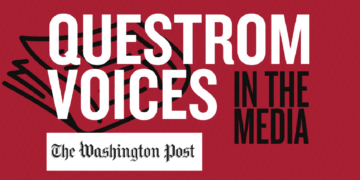What are scope 3 emissions?
There are three scopes of greenhouse gas emissions:
- Scope 1 emissions are the direct emissions a company generates from sources under its ownership or control. For an automobile manufacturer, scope 1 emissions come from the manufacturing process itself, such as emissions from paint booths or assembly lines.
- Scope 2 emissions are indirect emissions arising from the energy purchased and consumed by a company. In the case of an automobile manufacturer, scope 2 emissions refer to the electricity used in the manufacturing process.
- Scope 3 emissions cover a wider range and result from activities across a company’s value chain, including upstream and downstream activities. For example, for an automobile manufacturer, scope 3 includes emissions from customers driving vehicles after purchase (downstream) and emissions from suppliers of paints, adhesives, plastics, and other materials used by the automobile manufacturer (upstream).
It’s important to note that scope 3 emissions have two unique characteristics. First, they constitute a significant portion of a company’s emissions, often representing around 75% of greenhouse gas emissions according to the CDP. In industries like financial services, scope 3 emissions can approach 100%. Secondly, as they encompass a company’s entire value chain, scope 3 emissions from one firm can be considered another firm’s scope 1 emissions. This emphasizes the interconnectedness and shared responsibility for reducing emissions across the supply chain.
What do you see as the major reasons that regulators must address scope 3 emissions measurement in financial statements?
Many countries, regions, and firms have set ambitious climate change mitigation goals, aiming to reduce carbon emissions and reach net-zero emissions within specific timelines. Given the sheer size of scope 3 emissions compared to scope 1 and 2 emissions for most industries, accurate reporting and active management of scope 3 emissions are crucial for firms to align their operations with these global goals.
Investors now place greater importance on climate-related information for their investment decisions. They recognize that climate risks can pose significant financial implications for companies and therefore require reliable information on these risks. Regulators like the U.S. Securities and Exchange Commission (SEC) play a crucial role in hitting the high demand for consistent and comparable information. In its 2022 proposal to enhance and standardize climate-related disclosure, the SEC highlights the value of measuring and disclosing scope 3 emissions. Doing so could enable investors to better assess the full magnitude of climate-related risks associated with a company’s greenhouse gas emissions, support firms in achieving emission targets, facilitate comparisons between companies, and fill information gaps that could lead to incomplete or misleading impressions with disclosure limited to scopes 1 and 2 emissions. Furthermore, the SEC acknowledges that the disclosure of scope 3 emissions has already generated actual benefits, stating that “capital markets have begun to assign financial value to this type of metric, such that it can be material information for investors about financial risks facing an industry.”
What challenges do managers face when measuring and managing scope 3 emissions?
The Greenhouse Gas Protocol Corporate Value Chain Accounting and Reporting Standard helps firms assess their entire value chain emissions. The Standard creates a map of a firm’s entire upstream and downstream activities, including a life-cycle analysis of emissions associated with sold products and firm assets on and off the balance sheet. There are at least four critical issues while implementing this Standard.
- First, the cost of mapping emissions of a full value chain map of emissions could be prohibitively high. S&P Global estimates first-time direct costs ranging from $245,000 to $355,000 per firm.
- Second, a mapping exercise is likely to reveal sensitive proprietary information concerning both the firm and its suppliers, compromising the firm’s competitive advantages.
- Third, scope 3 estimations are mostly done by outside organizations. Outsourcing to outside organizations may result in excessive imprecision, leading to compliance with the standard’s requirements only in form. For example, they may map only a fraction of the company’s supply chain, focusing on a few level 1 suppliers only.
- Fourth, given the leeway for firms in the SEC proposal to use different methods for scope 3 emissions, there may also be little chance that the measures would be comparable across firms and, thus, create a benefit for investors.
How can greater transparency and disclosure around scope 3 emissions help investors, customers, and other stakeholders understand a company’s environmental impact and make more informed decisions?
It’s difficult to find public information on a firms’ scope 3 emissions. Without disclosures from companies, investors and other stakeholders cannot determine if firms are living up to their stated climate commitments or how exposed they are to changing policies aimed at reducing emissions.
Specifically, the disclosure of scope 3 emissions provides investors with a more complete understanding of the firm’s environmental impact beyond its direct operations. This disclosure enables investors to evaluate the potential physical, regulatory, reputational, and financial risks associated with climate change. With access to this information, customers can evaluate the sustainability credentials of any product or service they consume, and consequently may avoid products from firms with higher emissions. Moreover, the disclosure will also allow customers to understand how much they contribute to the scope 3 emission and ways to reduce their own environmental footprint.
Did your studies reveal any surprising details about scope 3 emissions for corporate reporting?
In our article titled, “The Conundrum of Scope 3 Emissions for Corporate Reporting”, we highlight that, despite constituting for the largest number of emissions, scope 3 emissions have been overlooked by firms, regulators, and researchers. This is the conundrum.
To gain insight into the extent of scope 3 emissions disclosed at the firm level, we examined the SEC filings of publicly traded U.S. firms between 2001 and 2022. We considered any mention of scope 3 related keywords as an indicator of disclosure, regardless of whether a firm quantified its scope 3 emissions. Although there was no specific requirement for such disclosure during the sample period, the SEC did call for the disclosure of material information on the impact and risks of climate change in annual reports as early as 2010. Some firms would have already disclosed certain scope 3 information based on the SEC’s materiality guidelines. Surprisingly, we found that the scope 3 emission disclosure in financial reports is sparse at best. However, there has been a notable increase in recent years (2020-2022), possibly driven by the anticipation of SEC’s 2022 proposal for climate-related disclosure, or increasing demands from investors, or regulations in other countries.
Regulators are also just beginning to consider mandating their disclosure in financial reports. While the anticipated adoption of the SEC’s proposed standardized disclosure should potentially enhance transparency and consistency of information on firms’ emissions, it will undoubtedly impose significant costs on U.S. public companies.
In light of concerns over costs, many companies have relied upon estimates of scope 3 emissions from external data providers instead of producing their own estimates. However, evidence suggests that these estimates lack reliability, completeness, and comparability. Moreover, data providers often do not describe the methods and models used to estimate scope 3 emissions. This lack of transparency makes it difficult to compare emission amounts across firms. Finally, potentially due to the above issues, research has shown very low correlations of scope 3 emissions among different data providers, casting doubt on the reliability of any single provider’s estimate for assessing firms’ emissions risk.
Why have regulators been slow in mandating scope 3 emissions reporting and why are companies reluctant to report data?
Regulators have been hesitant to mandate scope 3 emissions reporting. First, measuring and accurately allocating scope 3 emissions is complex, requiring data collection from multiple parties in a company’s value chain. This complexity is amplified for businesses with global supply chains. Regulators aim to enhance reporting consistency and comparability, but it remains uncertain whether mandating scope 3 emissions will achieve these goals, as different measurement models and levels can be employed.
Second, regulators may be mindful of the potential impacts on businesses’ competitiveness if scope 3 emissions reporting become mandated. Requiring companies to disclose such information throughout the supply chain could expose them to scrutiny and comparison with industry peers. Concerns may arise regarding the potential for disclosing sensitive business information, proprietary data, or trade secret. Regulators need to strike a balance between transparency and protecting companies’ confidential information.
Third, the collective research evidence has yet to document that financial markets will work better in the interests of society defined broadly –with mandatory environmental disclosure, including the efficient pricing of social and environmental externalities. Since measuring and reporting scope 3 emissions can be costly, it may lead to a number of potential litigations if companies perceive that the costs of mandatory disclosure over that of the present system which is essentially one of the constrained voluntary disclosure are greater than the benefits from a common set of disclosure rules (to increase consistency and comparability).

























